
Peacekeeping comprises activities, especially military ones, intended to create conditions that favor lasting peace. Research generally finds that peacekeeping reduces civilian and battlefield deaths, as well as reduces the risk of renewed warfare.

Civil-Military Cooperation (CIMIC) involves military commanders establishing connections with civilian agencies in operational theaters.
Operation Athena was the Canadian Forces' contribution to the International Security Assistance Force (ISAF) in Afghanistan. The operation was divided in two phases: the first one took place from July 2003 to July 2005 in the Kabul region and the second one from August 2005 to December 2011 in the Kandahar area. The operation's main objective was to improve Afghanistan's security and governance. Operation Athena in Kandahar constituted the longest combat mission in the history of Canadian Forces. With over 40,000 Canadian military units that, at some point, entered the country—often several times—this operation constitutes the largest military deployment of the Canadian Forces since World War II.

In current military use, combined operations are operations conducted by forces of two or more allied nations acting together for the accomplishment of a common strategy, a strategic and operational and sometimes tactical cooperation. Interaction between units and formations of the land, naval and air forces, or the cooperation between military and civilian authorities in peacekeeping or disaster relief operations is known as joint operations or interoperability capability.
Civil Affairs (CA) is a term used by both the United Nations and by military institutions, but for different purposes in each case.

A police tactical unit (PTU) is a specialized police unit trained and equipped to handle situations that are beyond the capabilities of ordinary law enforcement units because of the level of violence involved. A police tactical unit's tasks may include: executing dangerous search warrants and arrest warrants for dangerous persons; arresting or neutralizing dangerous or mentally ill armed persons; and intervening in high risk situations such as shootouts, standoffs, hostage-takings, and terrorist incidents.
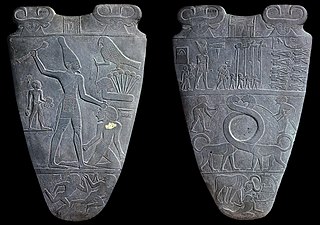
State-building as a specific term in social sciences and humanities, refers to political and historical processes of creation, institutional consolidation, stabilization and sustainable development of states, from the earliest emergence of statehood up to the modern times. Within historical and political sciences, there are several theoretical approaches to complex questions related to the role of various contributing factors in state-building processes.
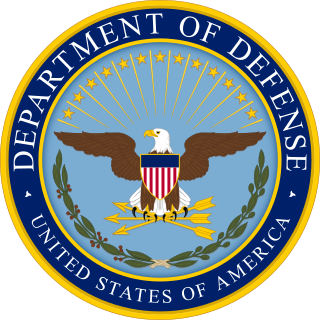
The United States under secretary of defense for policy (USDP) is a high level civilian official in the United States Department of Defense. The under secretary of defense for policy is the principal staff assistant and adviser to both the secretary of defense and the deputy secretary of defense for all matters concerning the formation of national security and defense policy.
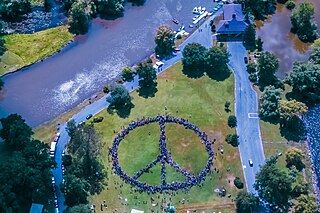
Peacebuilding is an activity that aims to resolve injustice in nonviolent ways and to transform the cultural and structural conditions that generate deadly or destructive conflict. It revolves around developing constructive personal, group, and political relationships across ethnic, religious, class, national, and racial boundaries. The process includes violence prevention; conflict management, resolution, or transformation; and post-conflict reconciliation or trauma healing before, during, and after any given case of violence.
Strategic reset was a policy framework designed to stop counterproductive U.S. engagement in a fragmenting Iraq and to strengthen the United States' stance throughout the Middle East. In military terms, "reset" refers to "a series of actions to restore units to a desired level of combat capability commensurate with future mission requirements."
Irregular warfare (IW) is defined in United States joint doctrine as "a violent struggle among state and non-state actors for legitimacy and influence over the relevant populations." In practice, control of institutions and infrastructure is also important. Concepts associated with irregular warfare are older than the term itself.

The Civilian Response Corps is a program of the United States Department of State, Office of the Coordinator for Reconstruction and Stabilization (S/CRS). The Civilian Response Corps is a group of federal employees and volunteers from the private sector, state and local governments who are trained to deploy rapidly in countries that are in crisis or emerging from conflict in order to provide reconstruction and stabilization assistance.

The NATO intervention in Bosnia and Herzegovina was a series of actions undertaken by NATO whose stated aim was to establish long-term peace during and after the Bosnian War. NATO's intervention began as largely political and symbolic, but gradually expanded to include large-scale air operations and the deployment of approximately 60,000 soldiers of the Implementation Force.

The Office of Transition Initiatives (OTI) is part of the United States Agency for International Development (USAID) Bureau for Democracy, Conflict, and Humanitarian Assistance (DCHA) and was developed to provide fast, flexible, short-term assistance to take advantage of windows of opportunity to build democracy and peace. It seeks to lay the foundations for long-term development by promoting reconciliation, jump starting economies and helping stable democracy take hold.
The Office for Conflict, Stabilisation and Mediation (OCSM) formerly the Stabilisation Unit, is a cross-government unit of the UK government, governed through the National Security Council. It is a component of the Foreign, Commonwealth & Development Office (FCDO). It works cross-government to reduce the creation and intensity of conflicts abroad.
Promoting recovery from conflict is not limited to simply a humanitarian, security or development issue and often involves a combination of all three. Stabilization of fragile states is an approach and a process regarding the fragility and security of said states. Hence, stabilization is an essential concept in relation to fragile and failed states, where basic institutions and services are lacking and where conflict is an influential factor. OECD uses the term from fragility to resilient to describe the process of stabilization.
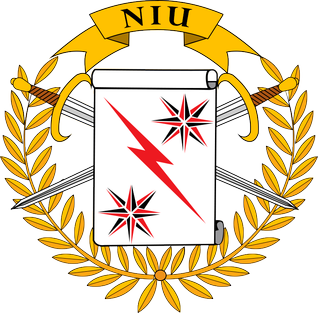
The National Intervention Unit (NIU) is a tier-two police tactical unit, part of the special operations element of the South African Police Service (SAPS).
Expeditionary economics is an emerging field of economic enquiry that focuses on the rebuilding and reconstructing of economies in post-conflict nations and providing support to disaster-struck nations.

Rachel Grimes is a retired officer of the British Armed Forces. She worked for almost three decades in the security sector. Grimes has deployed on operations with NATO, the United Nations and as a part of a UK national contingent in war and conflict areas in Europe, Asia and Africa. She has worked in security sector reform, counterinsurgency operations and human security in military operations. Initially working in transport, logistics and air defence missile systems. Grimes went on to be the Army's spokesperson in the MOD and deployed as a media operations officer in Iraq in 2003. She has also worked in the area of influence operations and as a doctrine and policy writer. Grimes was part of the NATO Counterinsurgency Writing Group from 2011 to 2013. She worked in the Democratic Republic of Congo with the United Nations Organization Stabilization Mission in the Democratic Republic of the Congo's (MONUSCO's) as the UN Force Commander's Child Protection and Gender Field Advisor in Goma. She deployed to a similar role in Iraq in 2015 and then spent three years at the United Nations HQ in New York acting as a Gender and Child Protection Adviser to the UN Military Adviser. She is keenly aware of the gender dynamics at play in conflict and in peace and has studied the role and contribution of women and military masculinities in Counter Insurgency Operations and the British Army.
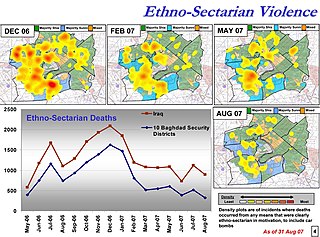
Expeditionary energy economics (e3) is an emerging field of energy economics that addresses energy management in the military expeditionary environment or as part of the disaster response stage of the emergency management cycle. The term was first introduced in 2018 in an article by U.S. Army Major Ion A. Iftimie, a research fellow within the Strategic Analysis Department of the NATO Energy Security Center of excellence in Vilnius, Lithuania. Major Iftimie proposed that the successful megacity counterinsurgency (COIN) campaigns of the twenty-first century will depend on fast solutions to critical energy infrastructure (CEI) vulnerabilities within individual communities. The practice of energy management in the military expeditionary environment (EMMEE) is not new. The US Marine Corps has an Expeditionary Energy Office, and NATO uses the new field to test the applicability and value of a draft military adaptation of ISO 50001:2011.











